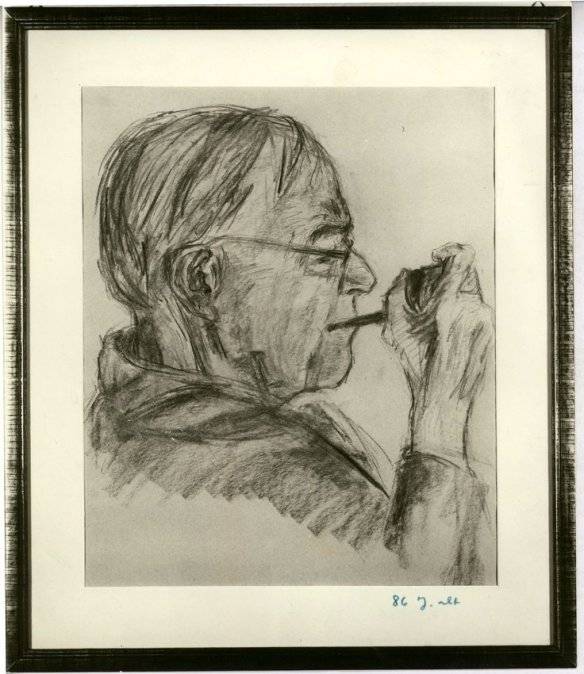Karl Barth being rightfully critical of a reformed Federal or Covenantal theology. Here we see what it looks like to think from a noncompetitive relationship between God and humanity; and to simply think humanity from God’s life for us. It is God who is genuinely free in His inner and eternal life, and not us (‘Not unto us, not unto us, but to God be the glory’ Ps 115). It is God’s being in becoming for us, wherein the “us” comes to have the type of creaturely, and thus contingent independence (as TFT would say it) vis-à-vis God that the creature has. That is to say, it isn’t us, apart from Him, or prior to Him, that grounds a relationship, a knowledge of Him; indeed, quite the contrary! God in Christ is the condition for all that is, and ever will be. The primacy of Christ (see Col 1.15ff), the “pantocrator-ness” of the living God is indeed that. As such, as we abide as humans, in the Branch of God’s life for us, it is here where we come to move and breathe and have our being; since this is the only place where human being obtains in and through the free humanity of God in Jesus Christ.
. . . If we hold fast to God’s decree of grace in Jesus Christ, and to His activity of grace in the history of the covenant, we can never dream of setting the creature over against God as a kind of second party to the contract, knowing as we do that the creature has no freedom but that which is grounded on the unconditioned and irresistible freedom and supremacy of God, having no power to concur but only to corroborate and understand and glorify. If we take absolutely seriously the meaning and character of the divine lordship, we are in a position to take with equal seriousness recognition of it as such.[1]
[1] Karl Barth, Church Dogmatics III/3 §49 [119] The Doctrine of Creation: Study Edition (London: T&T Clark, 2010), 121.

